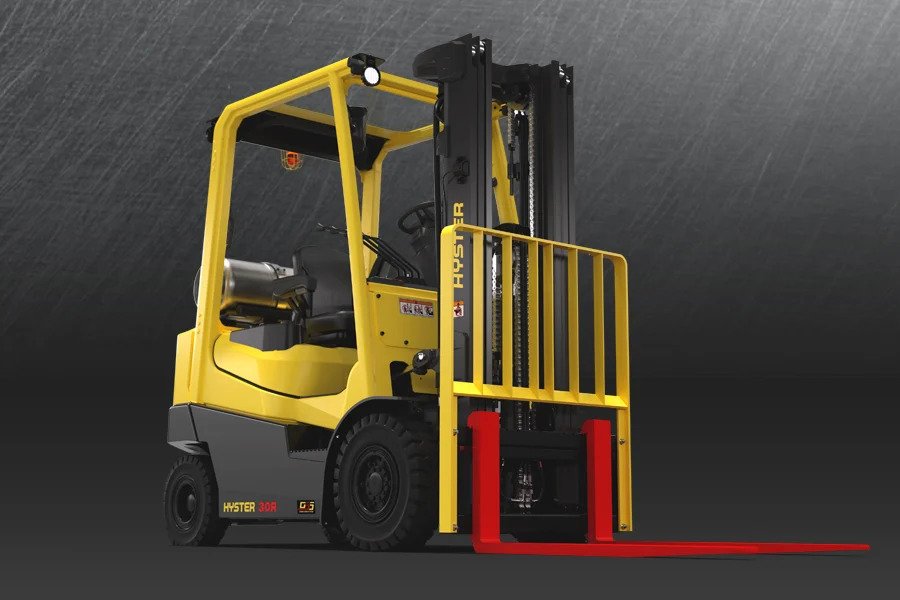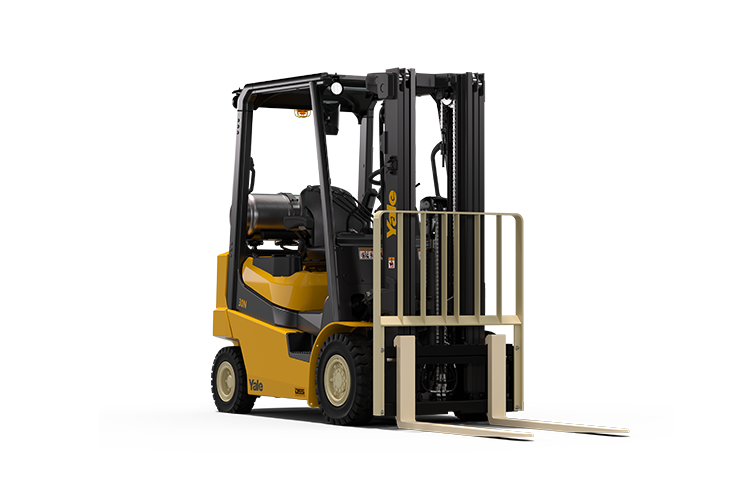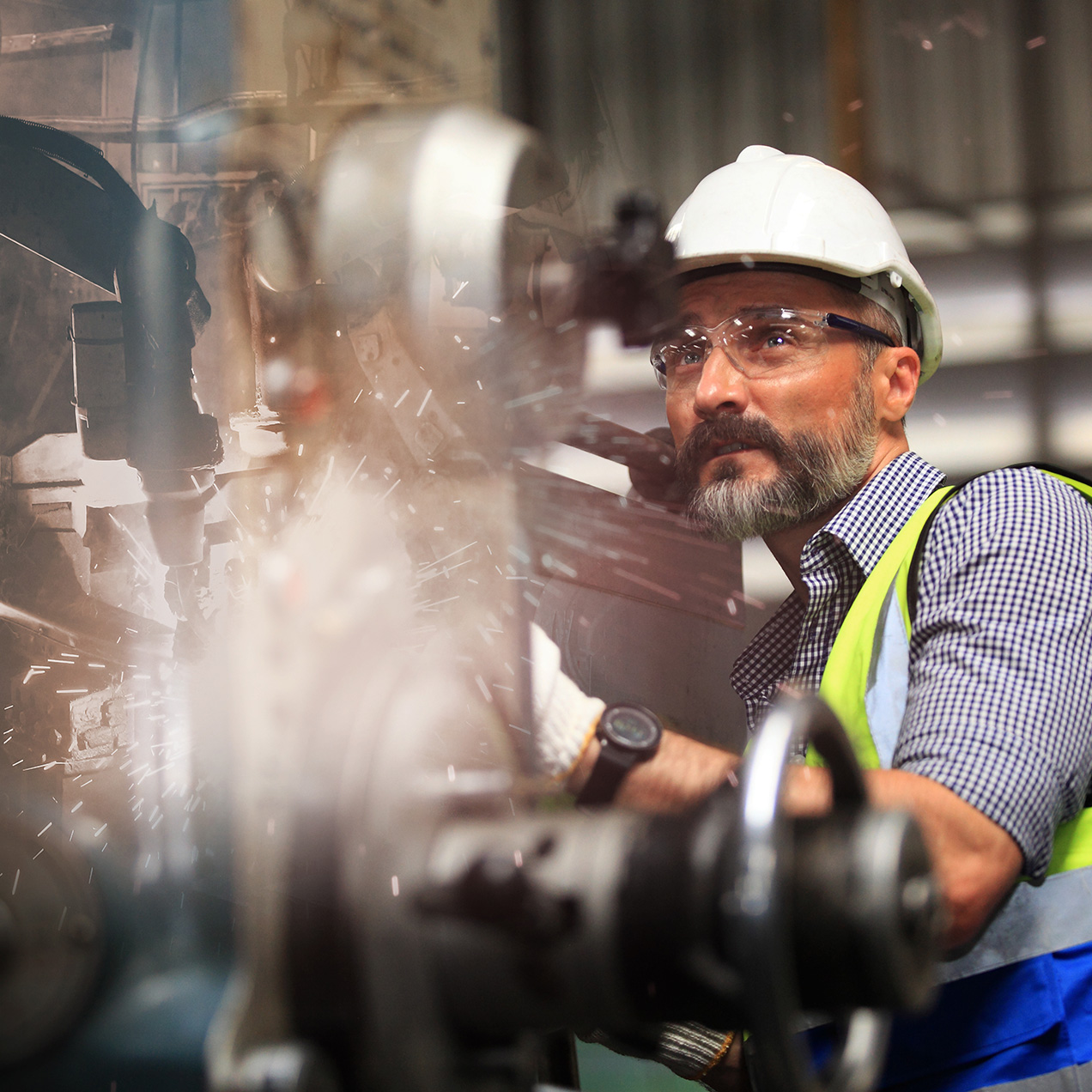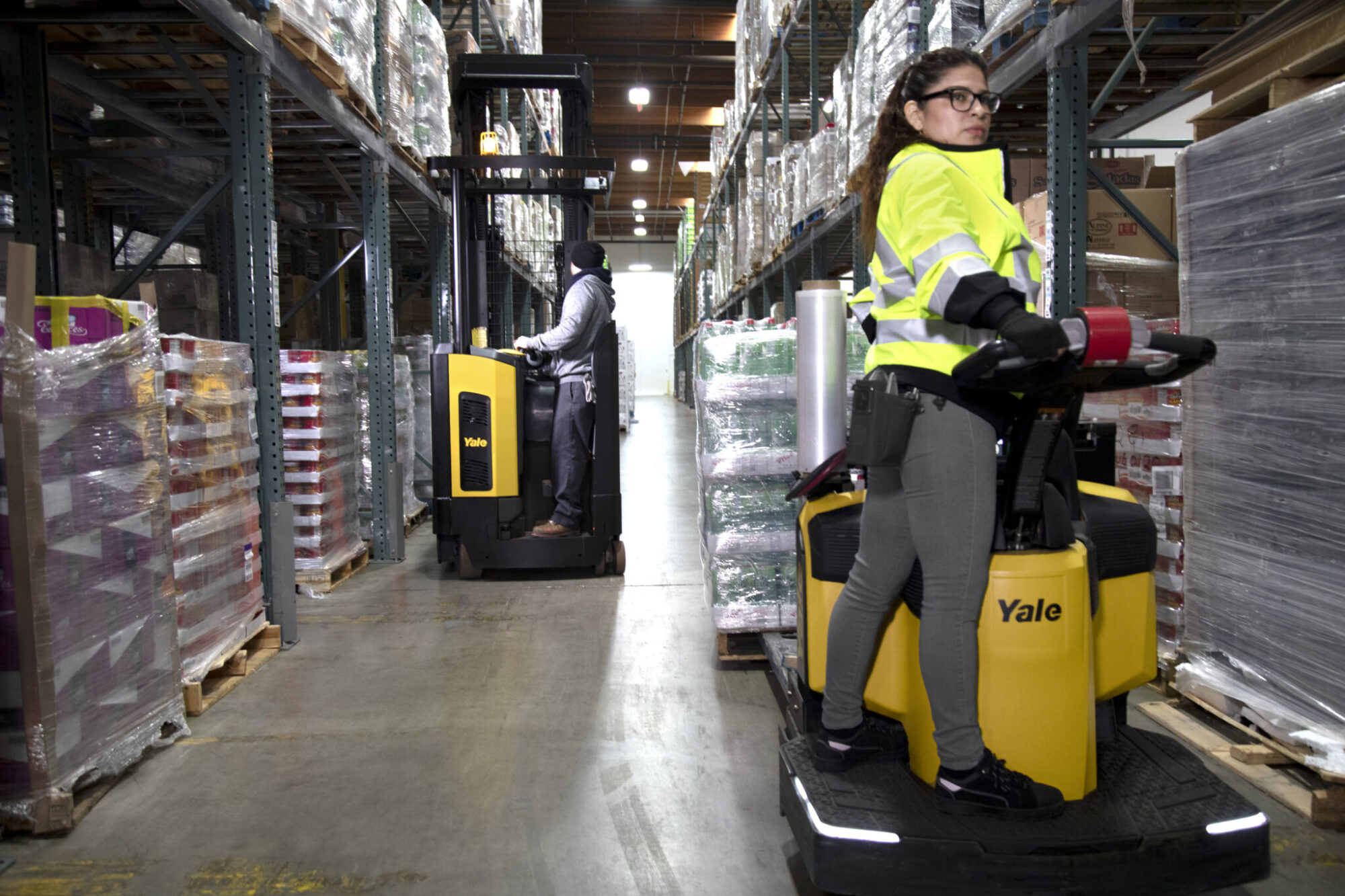Dynamic Stability System
Enhancing Safety and Efficiency: The Dynamic Stability System (DSS)
The Dynamic Stability System (DSS) represents a significant advancement in material handling technology, prioritizing safety and efficiency in warehouse operations. By actively monitoring and adjusting the truck’s stability in real-time, DSS contributes to a safer working environment, reducing the risk of accidents and potential damage to goods.
What is Dynamic Stability System?
The DSS is an intelligent maintenance-free safety system integrated into Hyster A Series and Yale N Series forklifts. It continuously analyzes the truck’s operations and movements, considering factors like load weight, lift height, and tilt angles. If the system detects a potential instability, it automatically takes corrective actions to stabilize the truck, such as reducing speed or limiting the range of tilt, ensuring that both the operator and the products remain secure.

How It Works: Dynamic Stability System
The Dynamic Stability System (DSS) is a key tool for making lift truck operations safer, actively helping to lower the risk of tip-overs and reminding operators to work safely. However, it’s important to remember that even with DSS, the main way to keep the truck and the operator safe is to use the lift truck correctly and always wear the seat belt.
- Lateral Forklift Stability System: DSS helps keep the forklift steady when turning by reducing how much the truck leans. It does this with a special design for the steer axle that helps the truck travel smoothly, even on bumpy surfaces. Plus, this system doesn’t need any maintenance, and there are no controllers, sensors, or wires to worry about.
- High-Lift Traction Control: If the forks are raised too high, DSS automatically limits the truck’s top speed. When this happens, the operator will see a warning on the truck display and hear an alert.
- High-Lift Tilt Control: When carrying a load with the forks raised high, DSS controls how fast you can tilt and how far forward you can tilt. Again, the operator will see a warning and hear an alert.
- Corner Control: DSS makes sure that the truck doesn’t go too fast around corners, adjusting the speed based on how sharp the turn is. The operator is notified with a visual warning and an audible alert.
DSS helps make lift truck operations safer by:
- Controlling how fast the truck can go based on how high the forks are lifted
- Adjusting how far and how fast you can tilt based on the fork height and load
- Warning the operator if they are trying to lift a load while tilted forward
- Slowing the truck down around corners
- Giving visual and audible warnings
- Being maintenance-free
- Using a special steer axle design to keep the truck steady during turns
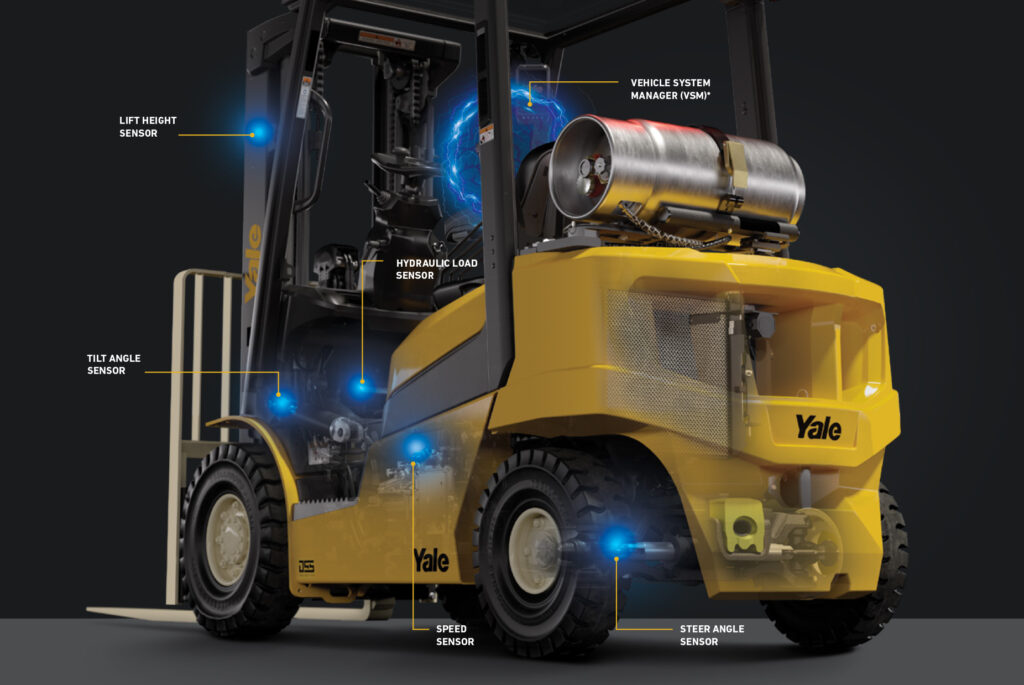
Through these features, DSS acts like a smart safety net, helping to keep lift truck operations stable and safe.
Benefits of DSS
Enhanced Safety: DSS plays a crucial role in enhancing the safety of material handling operations. By actively preventing tip-overs and other stability-related accidents, it contributes to a safer workplace, protecting operators and other personnel within the facility.
Increased Efficiency: By allowing operators to work confidently, knowing that they have an intelligent system watching their back, lift truck operators can perform their tasks more quickly and efficiently, leading to improved productivity.
Minimized Downtime and Damage: With DSS, the risk of accidents and the resulting downtime are reduced. This not only helps in maintaining a continuous workflow but also minimizes the potential for damage to goods and equipment, leading to cost savings and enhanced operational longevity.
Optimizing Operations with DSS
Consistent Performance Under Varying Conditions
One of the standout features of DSS is its ability to maintain consistent performance under varying operational conditions. Whether the forklift is handling light or heavy loads, or operating on uneven terrain, DSS adapts to these changes in real-time, ensuring stability and safety at all times.
Customization and Adaptability
DSS is designed to be highly adaptable, catering to the specific needs of different operations. The system can be customized to suit the unique requirements of various industries and applications, ensuring that it delivers optimal performance, regardless of the context.
DSS in Different Industries
Warehousing and Distribution Centers
In warehousing and distribution centers, where speed and efficiency are paramount, DSS helps in maintaining a brisk pace of operations while ensuring safety. Operators can navigate through tight spaces and handle high loads with confidence, knowing that DSS is there to maintain stability.
Manufacturing
In manufacturing settings, where precision and reliability are crucial, DSS ensures that material handling operations are carried out smoothly, without any disruptions due to stability issues. This contributes to a seamless production process, maintaining the integrity of operations.
Retail and eCommerce Fulfillment
With the boom in eCommerce and the need for quick order fulfillment, DSS proves to be an invaluable asset in retail warehouses. It enables operators to work at high speeds, moving products quickly and safely, contributing to faster order processing and delivery times.
The Dynamic Stability System (DSS) is a revolutionary technology in material handling, bringing unmatched stability, safety, and efficiency to operations. Its real-time monitoring and corrective actions make it an essential component for any modern material handling operation, across various industries. By investing in technology like DSS, businesses are not just enhancing safety and efficiency; they are taking a giant leap forward in operational excellence.
